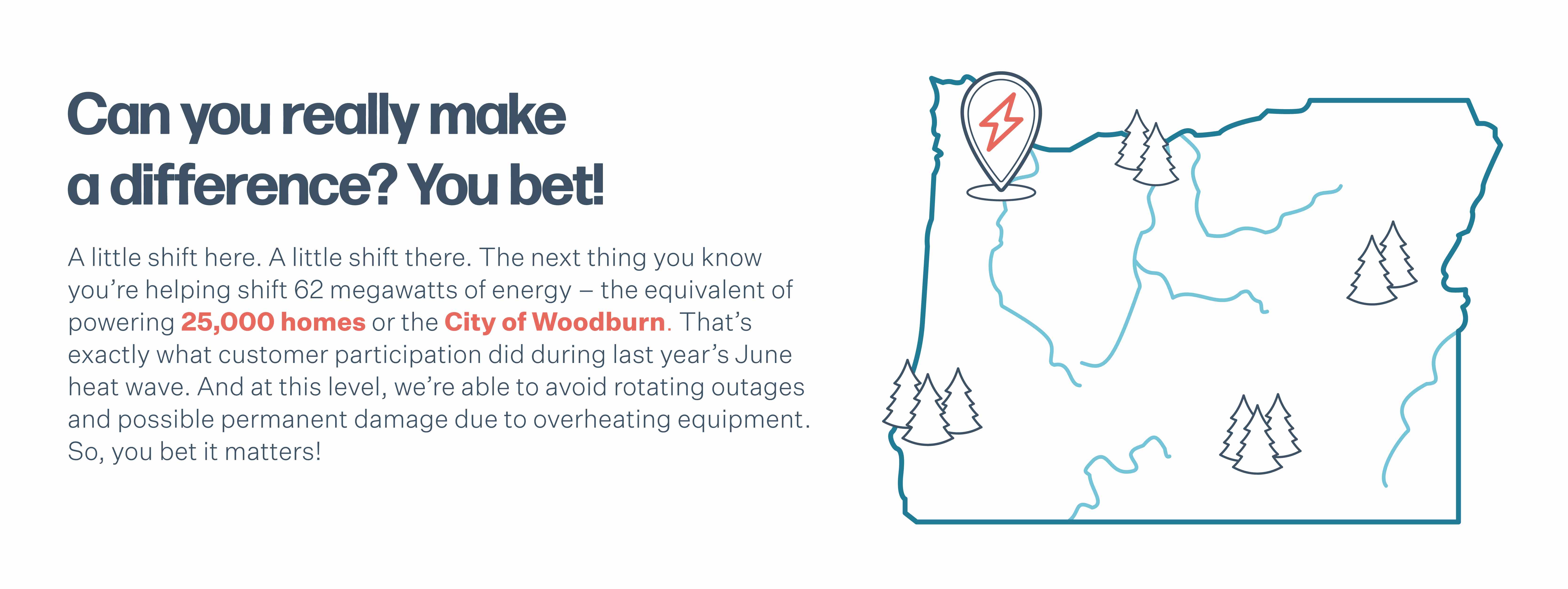
Can you make the shift?
How and when you use energy makes a world of a difference... and a difference in the world.
How and when you use energy makes a world of a difference... and a difference in the world.
Are you ready to shift to an Oregon kind of energy?
We all want energy that’s reliable, affordable and sustainable. When you shift your energy use during times of high demand, you help use more sustainable energy resources that help build a clean energy future for everyone.
3 ways you can make an impact today:
Peak Time Rebates
Peak Time Rebates is a program that notifies you when energy demand is high and rewards you for shifting your energy use away from those peak times. It’s easy for you and your family to be a part of Oregon’s clean energy future, plus you can get rebates on your bill.
Smart Thermostat Program
Start saving energy, money, and then the world. Installing a smart thermostat is a simple step to help you save energy and contribute to a clean energy future. If your home’s heating or cooling system qualifies, you can also earn rewards when you enroll in our Smart Thermostat program.
Electric vehicles and charging
Save money by going electric! Say goodbye to oil changes and gas stations, and hello to low-cost fuel, tax credits, incentives and special pricing for charging.
We have many ways to make it easy for you to shift energy. So, what’s the right energy shifting option for you? Just take the good energy quiz below.
Great reasons to make the shift
It’s easy to shift for what matters most to you. Plus, you’ll join an enthusiastic community of energy champions who’ve made the shift for all the right reasons.

Shift for savings
With smart programs that offer rewards and incentives, we’ll make it easy to shift and save.

Shift for sustainability
When you shift your energy use during times of high demand, it helps us provide you with a better balance of clean, sustainable energy sources.

Shift for reliability
Shifting energy use away from peak times helps us ensure reliability by reducing energy spikes on the grid during periods of high demand.

Time of Day savings
Take advantage of lower prices for using less energy during the high demand weekday hours of 5–9 pm.



